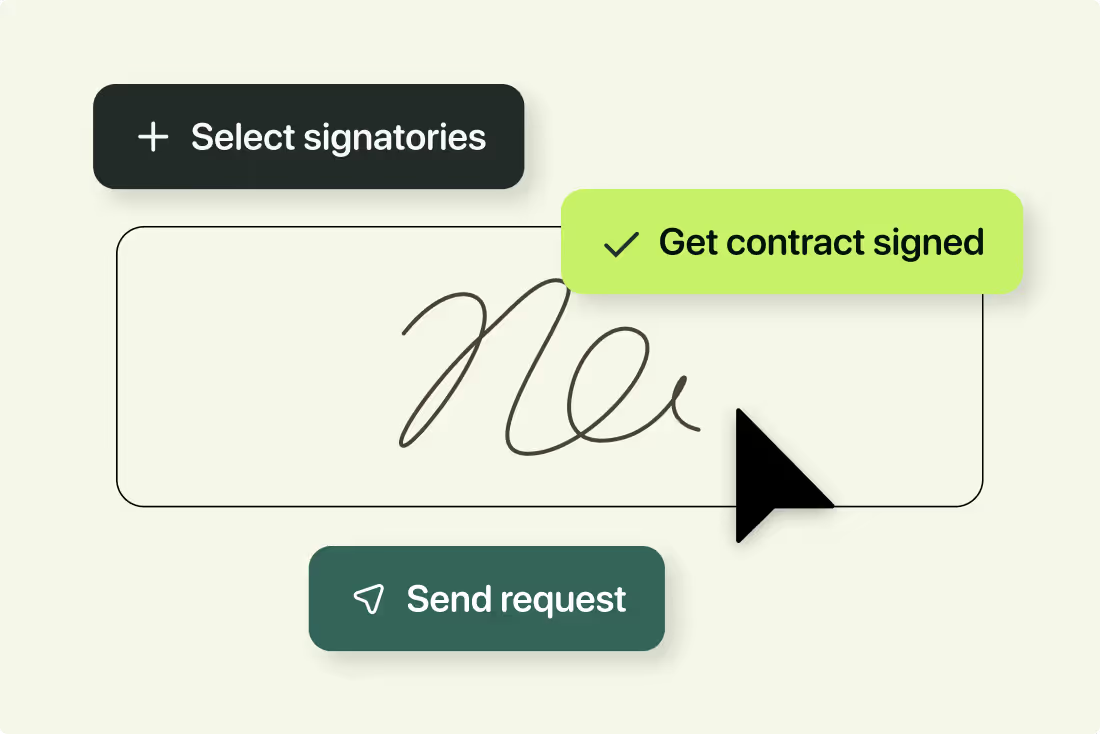Solutions
Customer Support
Resources
Knowing when a contract begins is key. Discover what a contract commencement date is and how to track them at scale in this guide.
A commencement date is defined as the date that a contract or legal agreement becomes effective.
In other words, a commencement date marks the point at which a contract officially begins and binds the parties involved. This is also known as the contract’s effective date.
It’s important to recognize the difference between a commencement date and the date on which a contract is signed. While they can occasionally be used interchangeably, not all contracts commence at the point of signing.
Some contracts will include a clause referring to a date in the future as the contract’s commencement date, instead. If this is the case, you should treat the commencement date as the date on which the obligations become effective.
Including a commencement date in a contract is important because this makes it clear when each party will officially assume responsibility for certain tasks and obligations.
If a contract doesn’t include a clear commencement date, this can result in confusion about when certain promises are due to be performed and when the other terms in the contract come into effect. This is a common cause of contractual disputes because each party might have different expectations of when the contract actually begins.

More often than not, a commencement date is a date in the future. However, some people will choose to have the contract commence at the point of signing as they want it to become effective immediately.
It’s also possible for a contract’s commencement date to be in the past. Although, this can only be the case if this has been agreed upon by all contracting parties.
All parties to the contract will need to agree to a commencement date, regardless of when it is.
However, it’s usually up to the contract owner to select a commencement date when drafting the contract, and this date is then subject to negotiation when the contract is shared with the counterparty for review.
As we just mentioned, counterparties can negotiate a commencement date before signing the contract, if they wish. But it’s possible to change a contract’s commencement date post-signature, too.
However, this will need to be with the explicit consent of all contracting parties, and it will be achieved by amending the contract.
There’s no single rule about where a contract’s commencement date should appear within the agreement.
It’s good practice to have it displayed clearly at the front of a contract, though. This is because it’s one of the most important data points within a contract, so it should be easy to find and refer back to.
This is also useful from a legal design perspective because it means that the contract’s core information is made more accessible for the parties involved.
Just as it’s important to include a commencement date in your contract, it’s also important to track this commencement date. Doing this helps to ensure that you’re performing your contracts properly and not breaching the contract’s terms, which can have serious legal consequences.
This is especially important for businesses that manage contracts at scale and have different contracts commencing at different times.

While it can be tempting to try and remember these commencement dates or refer back to the contract at a later date to check them, this results in increased contractual risk.
Fortunately, most businesses track contract commencement dates in a contract management spreadsheet of some sort. They then refer back to this spreadsheet to monitor when they need to begin fulfilling their obligations.
However, this involves a lot of manual admin. Not only do contract owners need to spend time manually inputting the data, but they also need to check the spreadsheet regularly to make sure they’re not missing any deadlines.
There is a better way to set and track commencement dates for your contracts, though.
Contracts created in Juro are built as structured data. This means that the data points within your contracts (we call them smartfields or contract metadata) are all captured and recorded automatically, rather than you recording them manually.
These dates are then pulled into customizable contract dashboards, giving you real-time, actionable insights about your contracts.
To find out more, fill in the form below to book a personalized demo.

Lorem ipsum dolor sit amet, consectetur adipiscing elit. Suspendisse varius enim in eros elementum tristique. Duis cursus, mi quis viverra ornare, eros dolor interdum nulla, ut commodo diam libero vitae erat. Aenean faucibus nibh et justo cursus id rutrum lorem imperdiet. Nunc ut sem vitae risus tristique posuere.

